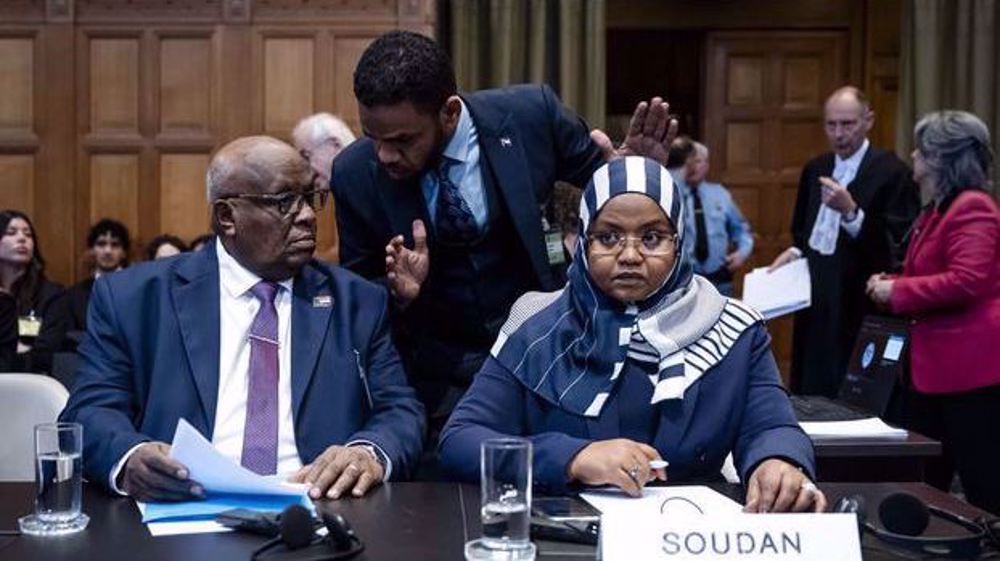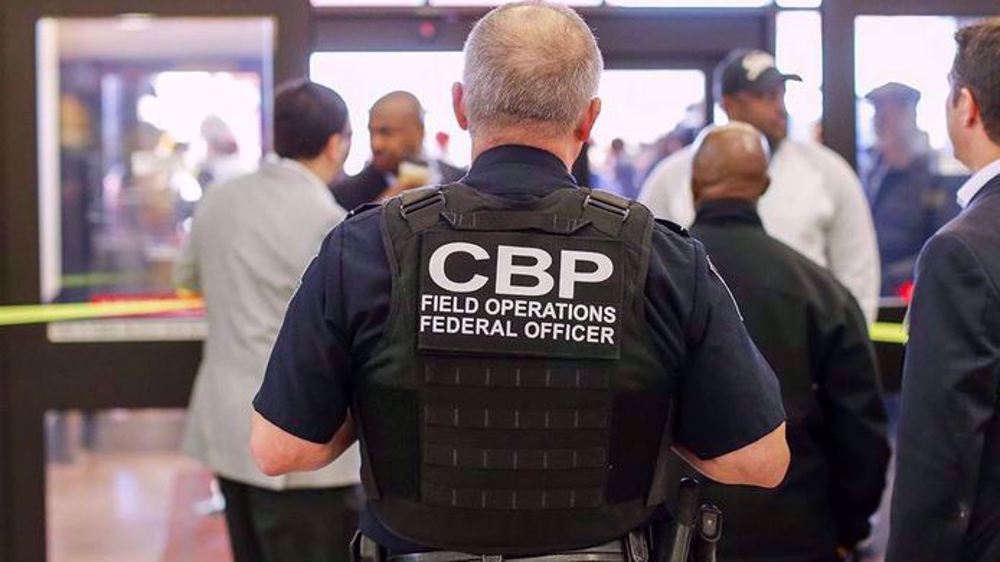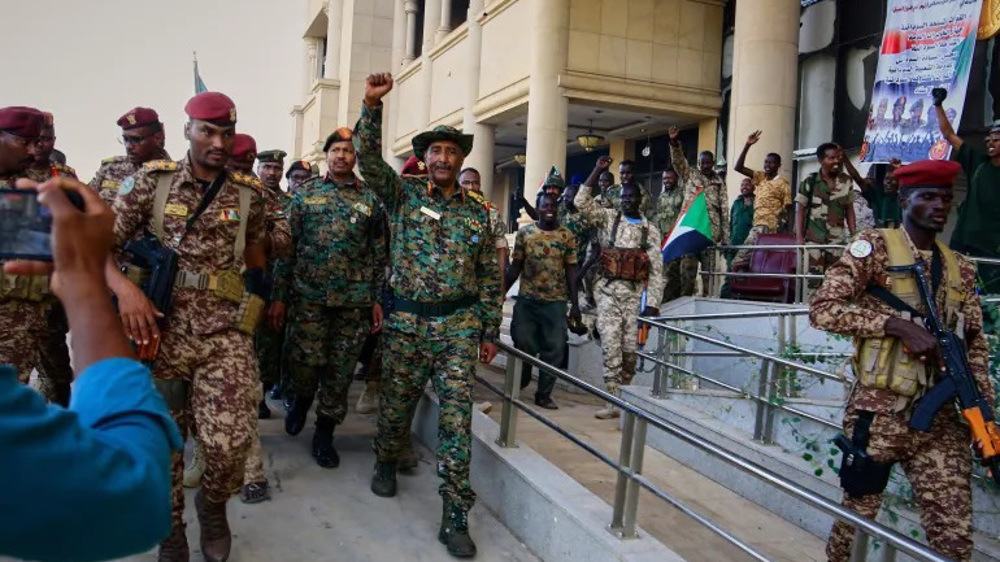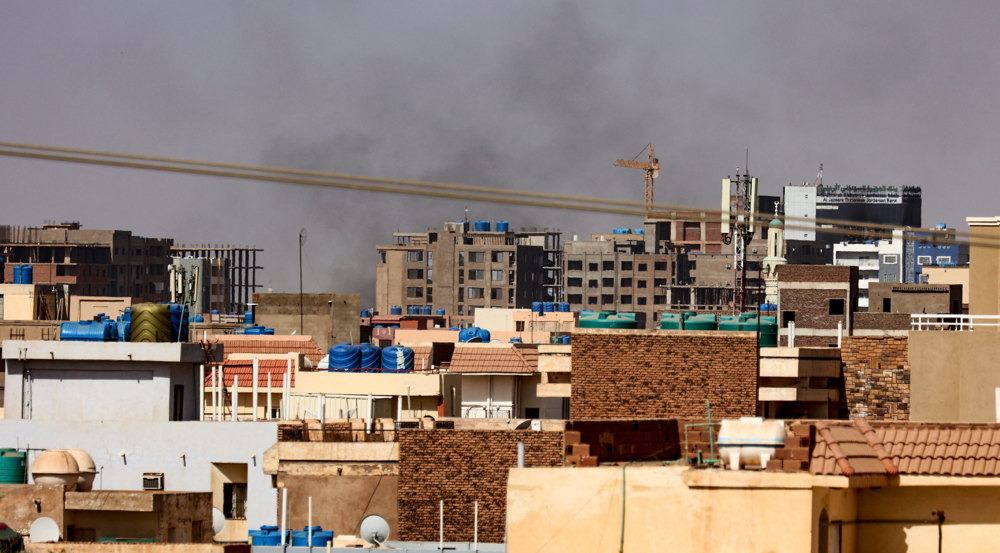UN chief: Sudan violence could spiral into 'catastrophic conflagration', engulf whole region
UN Secretary-General Antonio Guterres has warned that the violence between warring parties in Sudan could spiral into a “catastrophic conflagration,” calling on Security Council members to exert maximum leverage to help restore calm and order.
Guterres made the warning at a meeting of the UN Security Council on Monday and said the situation in Sudan "continues to worsen" as more than 420 people have been killed and almost 4,000 wounded since the fighting began in mid-April.
“The violence must stop; it risks a catastrophic conflagration within Sudan that could engulf the whole region and beyond,” Guterres told the meeting.
“I strongly condemn the indiscriminate bombardment of civilian areas, including healthcare facilities, and I call on the parties to stop combat operations in densely populated areas and to allow unhindered humanitarian aid operations. Civilians must be able to access food, water and other essential supplies and evacuate from combat zones,” he added.
Stressing that he was in “constant contact” with the parties to the conflict and had called on them to de-escalate tensions and to return to the negotiating table, Guterres said, "We must all do everything within our power to pull Sudan back from the edge of the abyss.”
Repeating his call for a ceasefire in Sudan, the UN chief said, “I call on all Council members to exert maximum leverage with the parties to end the violence, restore order and return to the path of the democratic transition.
The conflict stems from a power struggle between Sudan's army chief, Abdel Fattah al-Burhan, and his deputy, Mohamed Hamdan Daglo, widely known as Hemedti, who commands Sudan's paramilitary Rapid Support Forces (RSF), over a plan to integrate the paramilitary fighters into the regular military.
Burhan heads a ruling council installed after the 2021 military coup and the 2019 ouster of long-time ruler Omar al-Bashir, while Hemedti, who analysts say may command more than 100,000 fighters, was his deputy on the council.
The fighting, which broke out on April 15 between the Sudanese military and the RSF amid disagreements over the latter’s integration into the armed forces, has derailed the latest internationally backed plan for a transition to a civilian government in Sudan, four years after the fall of President Omar al-Bashir and two years after a military coup.
The conflict has dashed hopes for progress toward democracy in Sudan, and risks drawing in its neighbors as Sudan sits strategically between Egypt, Saudi Arabia, Ethiopia, and Africa's volatile Sahel region.

Sudan takes UAE to World Court over 'genocide' in Darfur

US revokes all visas held by South Sudanese passport holders

Sudan army takes full control of Khartoum amid RSF defiance
Syrian militants enslaving Alawite women in Idlib governorate: Report
VIDEO | US pro-Palestinian campus protest
VIDEO | Palestinian civil defense rejects Israel’s probe and exposes the crime
India downgrades ties with Pakistan after deadly Kashmir attack
Iran’s steel output up 3.7% y/y to 3.3 million mt in March
There is good chance that US and Iran can reach an agreement: Veteran diplomat
VIDEO | Yemen faces environmental crisis due to oil spill caused by US strike
Israeli forces murder minor, critically injure young Palestinian during West Bank raids







 This makes it easy to access the Press TV website
This makes it easy to access the Press TV website